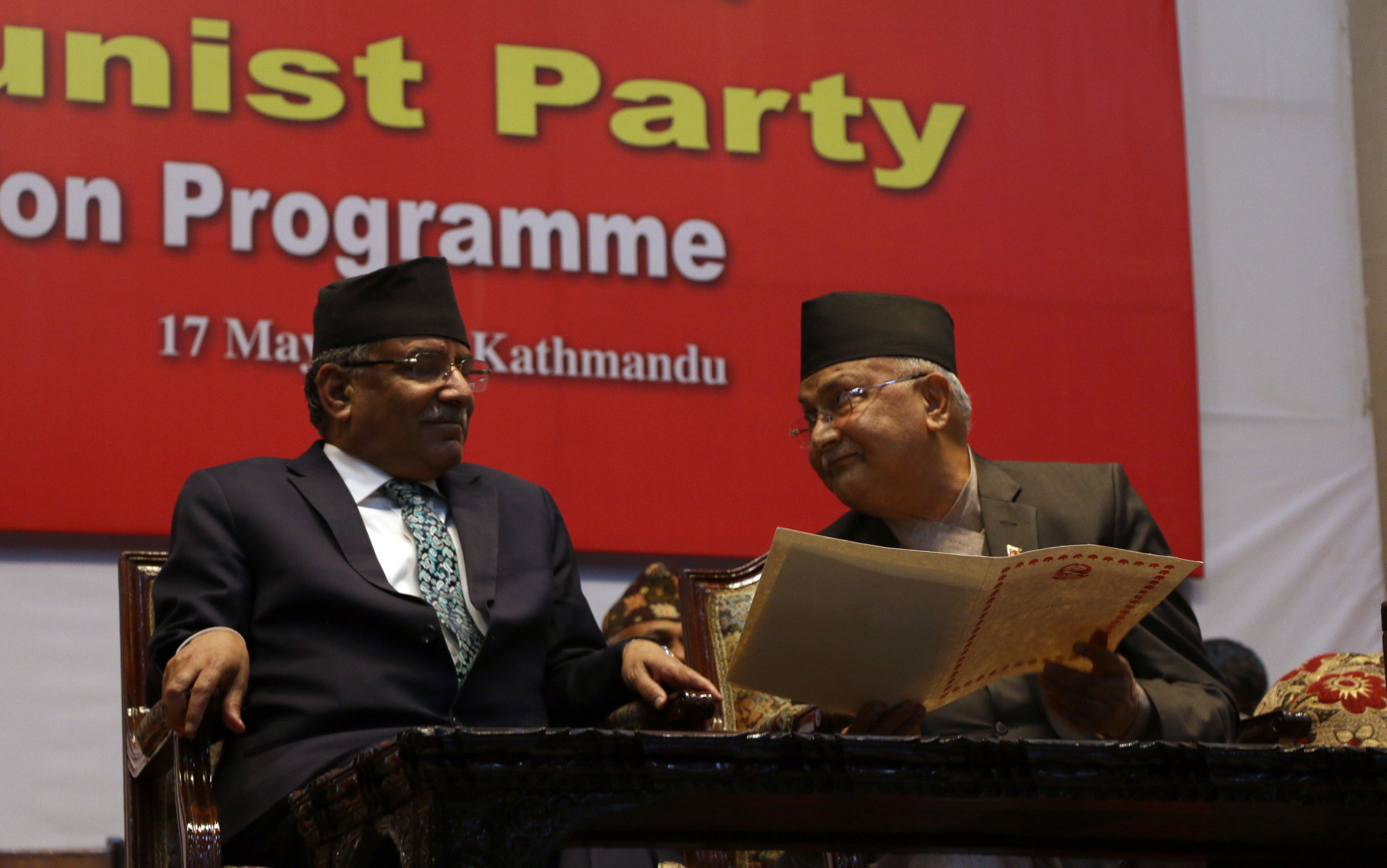Ruling party yet to give it completion
Kathmandu, May 17
A year ago, the two communist parties — CPN-UML and CPN-Maoist Centre — merged to form the Nepal Communist Party (NCP), the country’s largest political outfit.
When Prime Minister KP Sharma Oli and Pushpa Kamal Dahal, the two co-chairs of the new party announced the merger, they said the unification process would wrap up within three months.
One year down the line, the erstwhile CPN-UML and CPN-MC have merged most of their committees, albeit amidst some hiccups because of the dissenting voices of those unhappy with the party leadership’s decision. However, the merger process is far from over. The party’s politburo has not been formed and tasks have not been assigned to members of different committees, rendering many without work.
“Had the merger process been completed, the party would have been able to launch campaigns to clarify misunderstandings among the public about the government’s works,” said NCP Deputy Parliamentary leader Subash Nembang.
In the last one year, the NCP has formed a nine-member central secretariat, 45-member standing committee, 441-member central committee, and provincial and district committees. It took a long time to finalise members of provincial and district committees as the faction led by senior NCP leader Madhav Kumar Nepal was not happy with the selection process.
“Yes, there was some delay in forming these committees, but they were formed with consensus of party leaders,” NCP General Secretary Bishnu Paudel told a programme organised to mark the 26th year of the demise of former CPN-UML general secretary Madan Bhandari and leader Jibraj Ashrit, today.
Yesterday, the NCP finalised names of coordinators and joint coordinators of its 22 sister wings. The party now needs to form a 147-member politburo. It has to also divide work among members of the standing and central committees. It also needs to form around a dozen departments.
“These works have been delayed because factions inside the NCP are peddling their own interests,” former minister Sher Bahadur Tamang said, adding, “But things have changed now because the party leadership has agreed to complete the unification process on the basis of certain standard rather than relationship with individuals,” said Tamang.
Delayed completion of unification is preventing the party from monitoring the government’s work, according to Mani Thapa, an NCP leader close to Dahal. “The party should provide feedback to the government on its performance and direct it how to proceed ahead. But we have not been able to do these because many committees have not started functioning properly,” Thapa said.






